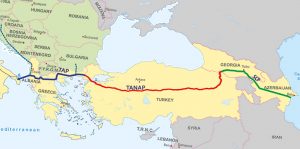Rex Tillerson, who is still the U.S. Secretary of State, met with the President of Turkey last week in an effort to work through the current difficulties between the two countries and in a rare departure of protocol, went alone to the meeting without even his own interpreter.
The meeting comes at a critical moment in the relationship between the U.S. and Turkey which illustrate the incredible complexity that is increasingly facing different parts of the world today.
Turkey, and its capital Istanbul, are particularly relevant as many large, international companies and organizations had chosen the city over the last few years as the best place to locate their regional hub. As recently as 2013 the list includedBASF, Citibank, Coca-cola, General Electric, Siemens and the United Nations Development Program as well as many more as shown in this list on the official government web site.
For executives living in and doing business with Turkey, the list of complex geo-political issues appears to be getting longer and includes:
- The increasingly authoritarian and islamic nature of Erdogan’s government which I discussed in a post in August, 2016 after a so called attempted coup was put down. Erdogan, and his party, are reportedly connected to the Muslim Brotherhood which is currently locked in a multifaceted battle for dominance across Sunni Islam with Saudi Arabia, the Sisi government in Egypt and others as reported by Bloomberg.
 Turkey’s centrality in a number of the schemes to bring natural gas from the Caspian Sea to Europe. After a number of false starts it finally looks like Turkey will transport gas using both the Trans-Anatolian Natural Gas Pipeline (TANAP) as well as the Turkish Stream which will cross the black sea from Russia. Both projects, as well as Turkey’s relationship with the Kurdistan Regional Government (KRG) of Iraq have to do with Turkey’s rising demand for energy as well as its ambition to be a regional energy hub.
Turkey’s centrality in a number of the schemes to bring natural gas from the Caspian Sea to Europe. After a number of false starts it finally looks like Turkey will transport gas using both the Trans-Anatolian Natural Gas Pipeline (TANAP) as well as the Turkish Stream which will cross the black sea from Russia. Both projects, as well as Turkey’s relationship with the Kurdistan Regional Government (KRG) of Iraq have to do with Turkey’s rising demand for energy as well as its ambition to be a regional energy hub.- Turkey’s complex relationship with Russia which has to do with history, energy policy, terrorism and the civil war in Syria. Russia and Turkey have gone to war several times in the course of history and Turkey joined Nato in 1952 clearly placing itself on the West’s side in the cold war. More recently, Turkey shot down a Russian plane which had strayed into its airspace in 2015 and the Russian Ambassador, was assassinated in December, 2016. Lately the two countries appear to be working together both in the new gas pipeline and also in Syria.
-

Abdullah Öcalan In Syria, Turkey has launched an offensive last month against the emerging country of Rojava, in the Kurdish part of Syria on the Turkish border. Specialists believe that such an operation would be impossible without tacit Russian support.
- Rojava, which means West in Kurdish, has emerged as a result of the Syrian civil war and the fight against Isis. Its military arm, the YPG has been instrumental in that fight and is receiving arms and training from the United States. Turkey’s stated war aims are to secure the border area and dial back the gains made by the YPG. What appears to concern Turkey is that the political organization of Rojava is based on the writing of Abdullah Öcalan, a Kurdish leader from Turkey who has been in Prison since 1999.
- Approximately 15% of the Turkish population are Kurds and Öcalan was one of the founding members of the PKK which Turkey considers a terrorist organization. Öcalan argues that the solution to the regions strife lies in promoting local, democratic government based on freedom of religon, gender equality, and respect for the natural environment. Rojava or the Democratic Federation of Northern Syria, as it is officially known, has proven extremely succesful in protecting Kurdish areas from both Isis and the Syrian government. Its relations with the KRG in Iraq are complex although the idea of a free Kurdistan spanning territory currently in Turkey, Syria, Iraq and Iran has been around since the Paris Peace talks 100 years ago.
 Finally, the United States is an ally of Turkey but is supporting the YPG in Syria and has been critical of Erdogan’s apparent hardening of his personal rule. As Turkish tanks rolled into Syria a couple of weeks ago, the Turkish Foreign minister wrote an op ed piece in the New York Times highly critical of the U.S.’s support of the YPG.
Finally, the United States is an ally of Turkey but is supporting the YPG in Syria and has been critical of Erdogan’s apparent hardening of his personal rule. As Turkish tanks rolled into Syria a couple of weeks ago, the Turkish Foreign minister wrote an op ed piece in the New York Times highly critical of the U.S.’s support of the YPG.
With all of this going on it is no wonder that Tillerson went to visit Erdogan.
John Kirby, a retired navy admiral who was spokesman for Secretary of State John Kerry for two years and now works for CNN, said that going on his own to the meeting with Erdogan was “either poor staff work or dangerous naïveté ” on the part of Secretary Tillerson. Another possibility is that the former Chairman of ExxonMobile did not want anyone else from the State Department to hear what he really said!

